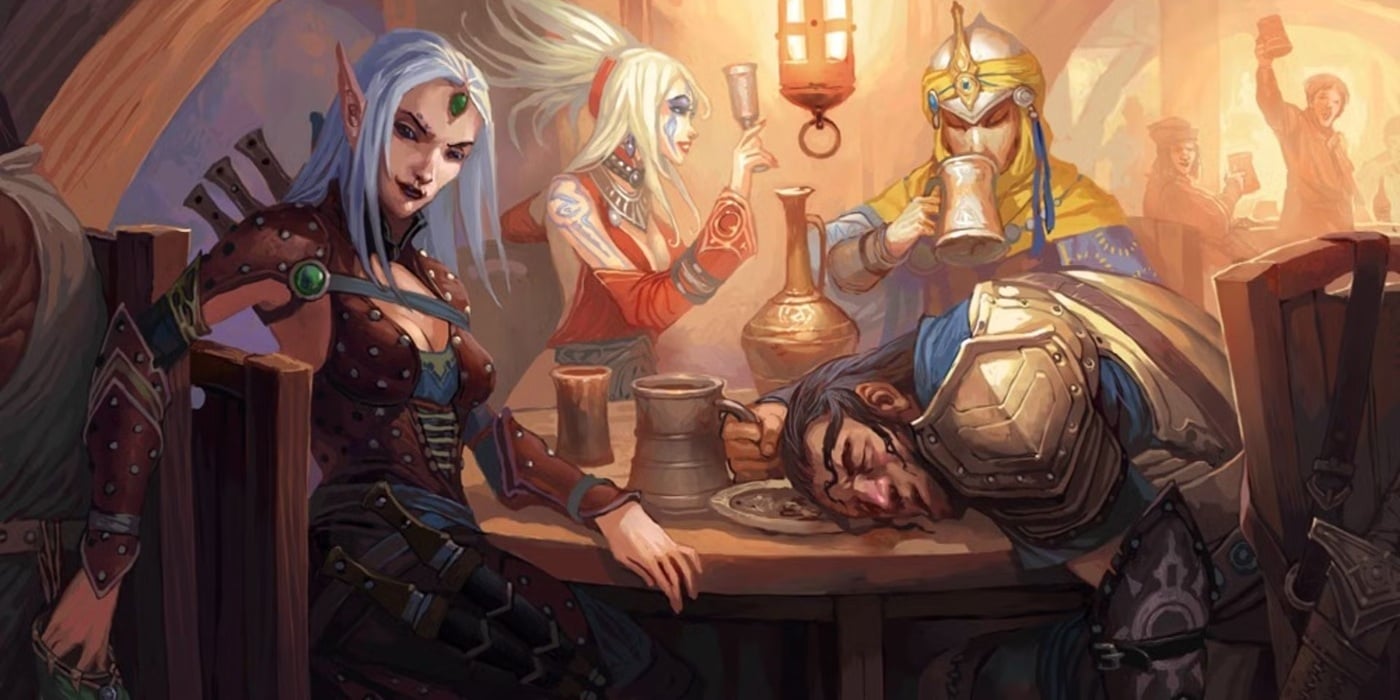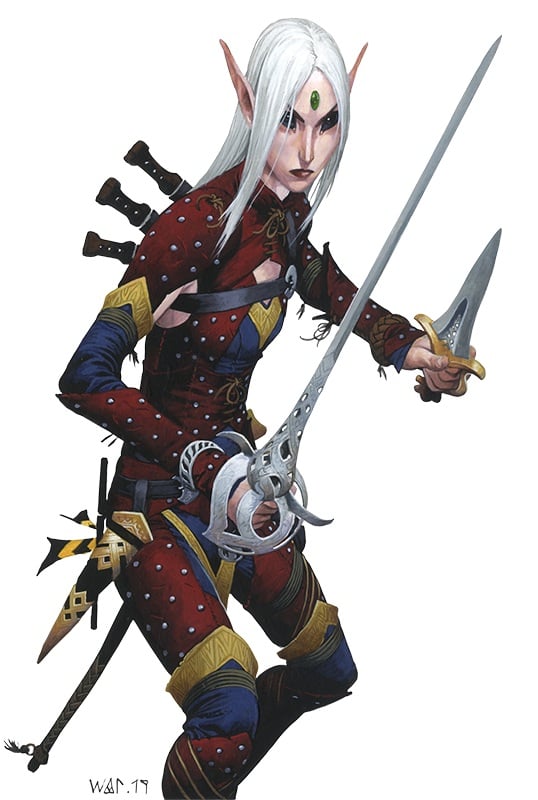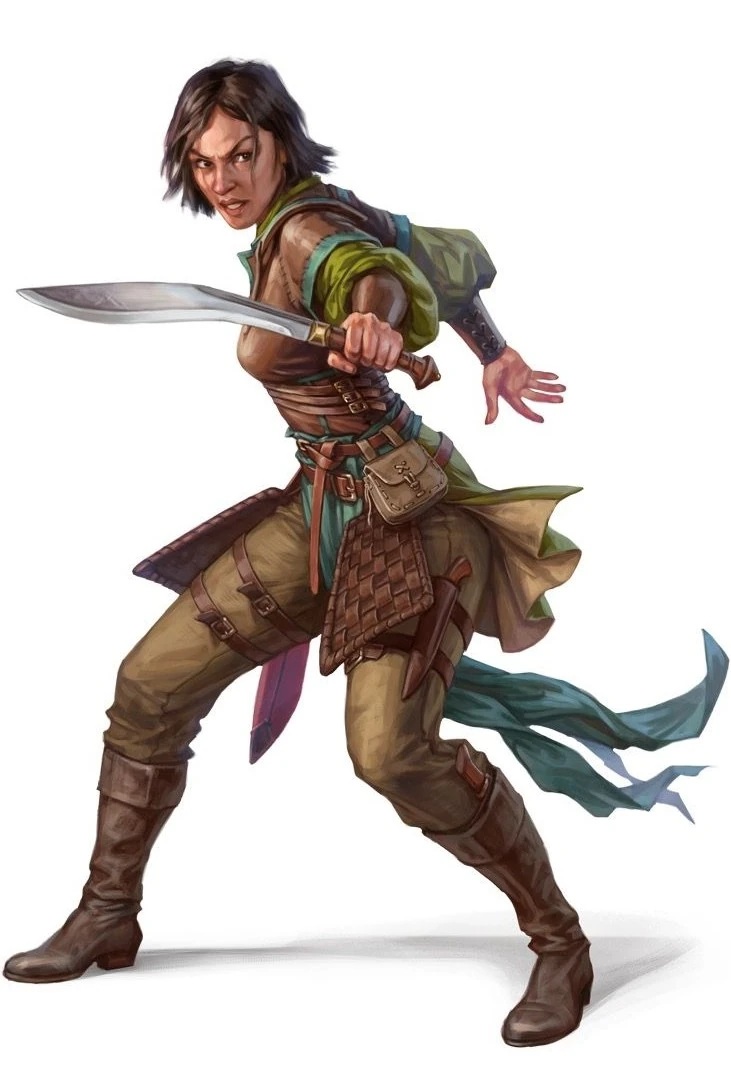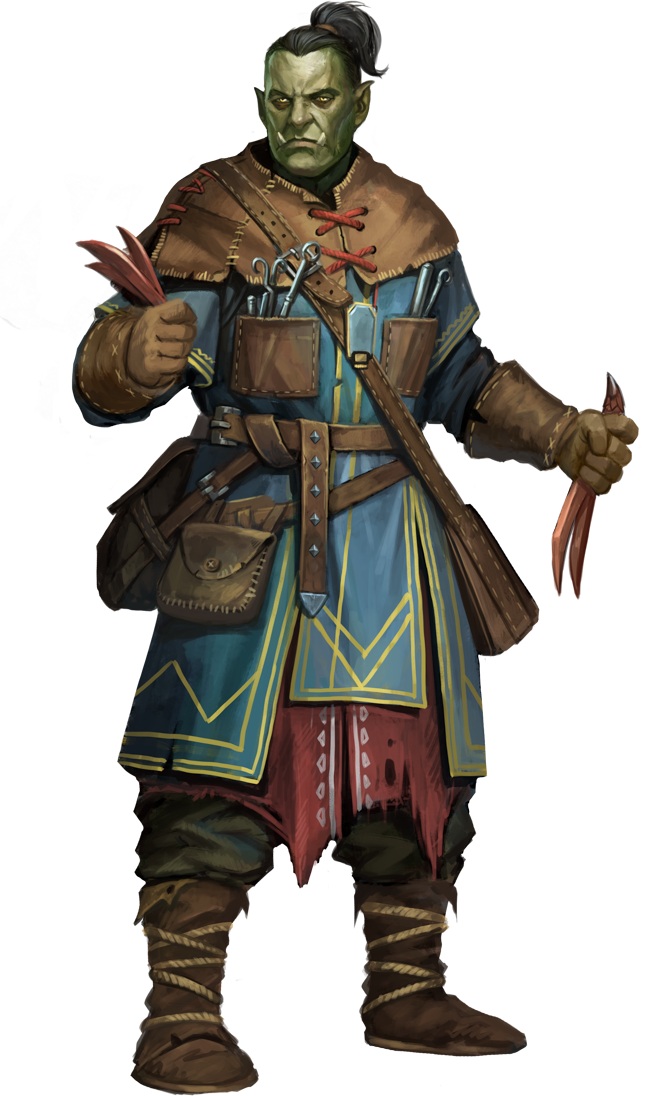By the time you see the Pathfinder Rogue coming, they’ve already gotten in a few sneak attack hits and stole your lunch money.
The Pathfinder Rogue is the class of opportunity, sneaking, and secrets. Rogues may live a little dangerously, often taking on unsavory odd-jobs that test their skills and stealth to the limit. But if you’re looking for little-known information, illicit fantasy-wares, or a contact from the social underground? You’re going to want to have a Rogue in your party.
Jump to…
The Pathfinder Rogue Basics
Rogues are a very Dexterity heavy class, taking a boost in the attribute at character creation. They start with expert level training in Perception as well as the Reflex and Will saving throws. They also start trained in Fortitude, Stealth, simple weapons, martial weapons, unarmed attacks, light armor, unarmored defense, a number of additional skills equal to their intelligence modifier plus seven, and another couple more skills as determined by their Rogue’s Racket.
In combat, a Rogue will probably move about the battlefield stealthily, aiming to catch enemies by surprise. They act with precision, finding the most useful bit of intel or the perfect position to attack or strike from. Outside of battle situations, Rogues have a tendency to influence, convince, trick or just threaten the people around them into acting the way they’d like. Pulling cons and finding out hidden information comes as naturally to the Rogue as breathing because of their extensive and specific training.
Rogue’s Racket
At level one, each Pathfinder Rogue chooses their racket. This is the specific kind of Rogue work they lean into and how they approach their job. Their Racket represents what training they’ve had and fall into one of four categories.
Mastermind
A Rogue in the Mastermind Racket uses their mind and intellect to craft schemes and plan many more steps into the future than anyone else would dream to. Mastermind Rogues tend to be spymasters, information brokers, detectives, or even crime lords. They can gain advantage over an enemy by successfully recalling pertinent information and use intelligence as their key attribute. Masterminds have training in Society as well as Arcana, Nature, Occultism, or Religion.
Ruffian
Rogues with the Ruffian Racket have a more direct, hands-on, intimidating approach. They often work as enforcers, bandits, or even nobles with a tendency to throw their power and political weight around. Ruffian can deal sneak attack damage with any weapon and have Strength as their key at tribe. They are trained in Intimidation and medium armor.
Scoundrel
The Scoundrel Racket Rogue is a fast-talker who knows how to gab their way into and back out of trouble. They are often grifters and con artists, but some may work as barristers or diplomats. Soundrels can throw a target off-guard with a successful Feint, and use Charisma as their key attribute. They are trained in Deception and Diplomacy.
Thief
If you’ve ever had a Rogue in your party who couldn’t help but take everything shiny that wasn’t nailed down, even if it risked big trouble for your party, they may have been a Thief. They usually work as pickpockets and cat burglars, though some may get work as consultants…. About thieves and crime. When attacking with a finesse weapon, Thieves can add their Dexterity modifier to damage instead of their Strength. They are trained in Thievery.
Sneak Attack
As the class known for stealth and sneaking up on their enemies, Pathfinder Rogues have access to Sneak Attack. When they strike a creature who is off-guard, they deal an extra 1d6 of precision damage. This ability increases in strength with the Rogue at 5th, 11th, and 17th levels.
Multiclassing a Pathfinder Rogue
There are many other Pathfinder classes for whom it would be helpful to be a little more quiet or sneaky. So there are many reasons why an adventurer may choose to multiclass as a Rogue. A Fighter may want to mix dexterity and finesse with their normal accuracy and power. Ranger-Rogues could combine sneaking and flurry edge for multiple sneak-attacks.
Multiclassing a Rogue gives the player access to the feats Rogue Dedication, Basic and Advanced Trickery, Sneak Attacker, Skill Mastery, Uncanny Dodge, and Evasiveness.
How to Play a Pathfinder Rogue
No matter how you play your Rogue, remember that they are a Dexterity and Finesse character. Whether they’re planning out every heist or sneaking up to strike the first blow of the battle, their speed and stealth are some of their biggest boons. You may want to lean into the Dexterity by stacking on sneaky abilities from ancestry and feats. Or you may want to pick up a little more strength for a character who’s always quietly grappling enemies. But the name of the game will almost always be keeping it quiet.

Not EVERYTHING Needs To Be Stolen
I know your first instinct as a Rogue may be to pick every pocket and steal every shiny. Try to fight that instinct. Yes, it’s a fun trope. And yes, it’s a big part of the Rogue archetype. But sometimes your party is going to need to get through a town or a dungeon or a big fancy house full of jewels without making more enemies.
That said, some pockets are begging to be picked. Just choose your battles.
Happy adventuring!
Subscribe to our newsletter!
Get Tabletop, RPG & Pop Culture news delivered directly to your inbox.
Don’t Miss:
Read more at this site




